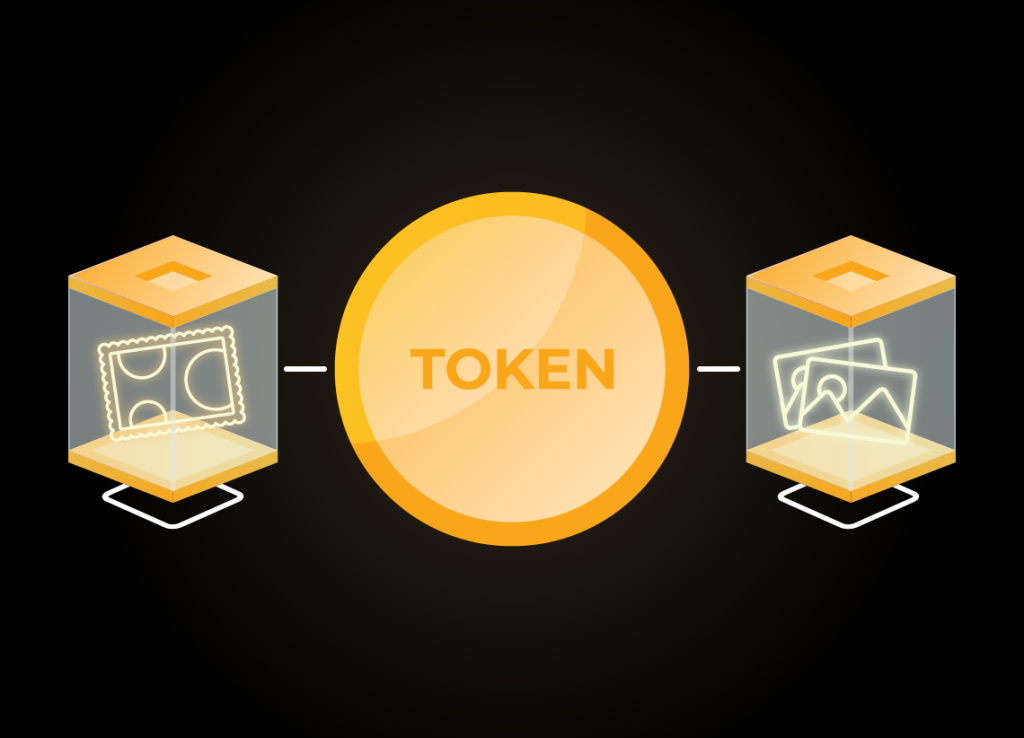
Introduction
Smart contracts have emerged as a transformative technology within the realm of cryptocurrencies, offering numerous benefits for cross-border payments. In this article, we will explore the role of smart contracts in streamlining cross-border payments with cryptocurrency. From enhancing efficiency and security to reducing costs and improving transparency, smart contracts are revolutionizing the way cross-border transactions are conducted using cryptocurrencies.
Understanding Smart Contracts
Smart contracts are self-executing contracts with the terms of the agreement directly written into code. These contracts automatically execute predefined actions once specified conditions are met. Built on blockchain technology, smart contracts eliminate the need for intermediaries, ensuring transparency, security, and efficiency in cross-border payments.
Automation and Efficiency in Cross-Border Payments
Smart contracts streamline cross-border payments by automating various processes. They enable instant settlement, removing the need for traditional banking delays. By automating payment instructions, reconciliations, and compliance checks, smart contracts expedite the overall payment process, significantly reducing transaction time and enhancing efficiency.
Enhanced Security and Trust
Smart contracts provide enhanced security and trust in cross-border payments. Transactions recorded on a blockchain are secured through cryptographic algorithms, making them resistant to alteration or tampering. The decentralized nature of blockchain ensures that transactions are validated by multiple participants, reducing the risk of fraud or unauthorized modifications.
Reduced Costs and Intermediaries
Smart contracts eliminate the need for intermediaries, such as banks or payment processors, in cross-border payments. This significantly reduces transaction costs associated with traditional intermediaries, including fees, currency conversion charges, and delays. Participants can directly engage in peer-to-peer transactions, bypassing costly intermediaries and lowering overall transaction costs.
Transparency and Immutable Recordkeeping
Blockchain-based smart contracts provide transparent and immutable recordkeeping of cross-border payments. All transaction details, including the terms and conditions, payment history, and identities of the involved parties, are recorded on the blockchain. This transparency enhances accountability, reduces disputes, and enables participants to access a verifiable and auditable transaction history.
Programmable Features and Conditional Payments
Smart contracts offer programmable features and enable conditional payments in cross-border transactions. Participants can define specific conditions that must be met for the release of funds or the execution of certain actions. For example, a payment can be automatically released to a recipient only when certain predefined conditions, such as the delivery of goods or services, are met.
Integration with Oracles and External Data
Smart contracts can integrate with oracles, which are external data sources, to access real-time information required for cross-border payments. Oracles provide smart contracts with external data, such as exchange rates, stock prices, or market data, enabling the execution of complex transactions based on up-to-date information.
Challenges and Considerations
While smart contracts offer significant advantages for cross-border payments, challenges and considerations exist. These include scalability concerns, potential programming errors, legal complexities, and the need for standardization. It is crucial for participants to understand these challenges and address them to fully harness the benefits of smart contracts in cross-border transactions.
Regulatory Landscape and Legal Implications
The regulatory landscape surrounding smart contracts in cross-border payments is still evolving. Participants must navigate regulatory requirements and legal implications specific to their jurisdictions. Compliance with anti-money laundering (AML) and know-your-customer (KYC) regulations, data privacy laws, and contract enforceability should be carefully considered when utilizing smart contracts for cross-border payments.
Emerging Trends and Future Potential
The adoption of smart contracts for cross-border payments is expected to grow rapidly. Emerging trends include the integration of artificial intelligence (AI) and Internet of Things (IoT) technologies with smart contracts, the development of interoperable blockchain networks, and the exploration of cross-chain transactions. These advancements further enhance the potential of smart contracts in streamlining cross-border payments.
Decentralized Finance (DeFi) and Smart Contracts
Smart contracts play a crucial role in the growth of decentralized finance (DeFi) applications. DeFi platforms leverage smart contracts to provide various financial services, such as lending, borrowing, yield farming, and decentralized exchanges. The integration of DeFi protocols with cross-border payments can enable participants to access a wider range of financial services while benefiting from the efficiency and security of smart contracts.
Interoperability and Cross-Chain Transactions
Interoperability among different blockchain networks is essential for seamless cross-border transactions using smart contracts. Efforts are underway to develop interoperability protocols that enable the transfer of value and data across multiple blockchains. Cross-chain transactions facilitated by smart contracts can unlock new possibilities for cross-border payments, allowing participants to transact with different cryptocurrencies and bridge liquidity between various blockchain networks.
Auditing and Transparency in Smart Contract Execution
Auditing smart contracts is crucial to ensure their integrity, security, and compliance with predefined rules. Smart contract audits involve code reviews, vulnerability assessments, and testing to identify potential vulnerabilities or programming errors. Transparent execution of smart contracts enables participants to verify that the contract behaves as expected, enhancing trust and reliability in cross-border transactions.
Cross-Border Remittances and Smart Contracts
Cross-border remittances stand to benefit significantly from the use of smart contracts. By leveraging smart contracts, remittance providers can streamline the transfer process, automate compliance checks, and reduce transaction costs. Smart contracts can facilitate instant settlement, eliminate intermediaries, and enhance transparency, making cross-border remittances faster, more affordable, and more accessible for individuals around the world.
Tokenization of Assets and Smart Contracts

Smart contracts enable the tokenization of real-world assets, such as real estate, art, or commodities. By representing these assets as digital tokens on the blockchain, smart contracts can facilitate the transfer of ownership and enable fractional ownership, opening up new possibilities for cross-border asset transactions. Tokenization combined with smart contracts enhances liquidity, reduces transaction costs, and simplifies the process of cross-border asset transfers.
Smart Contract Standardization and Best Practices
Standardization of smart contract development and best practices is essential for ensuring interoperability, security, and reliability in cross-border payments. Industry organizations, developers, and blockchain communities are actively working on developing standards and guidelines for smart contract development. Adhering to these standards can promote compatibility, reduce vulnerabilities, and improve the overall quality of smart contracts used in cross-border transactions.
Smart Contract Execution and Payment Verification:
- Smart contracts enable automatic execution of payment instructions once predefined conditions are met. This eliminates the need for manual verification and authorization, streamlining the cross-border payment process and reducing human errors.
- Participants can rely on the transparency and immutability of blockchain technology to verify the execution of smart contracts. The transaction history recorded on the blockchain provides an auditable and tamper-proof trail of payment verification.
Smart Contract Escrow Services:
- Smart contracts can act as escrow services, holding funds in a secure and transparent manner until all predefined conditions are satisfied. This provides an added layer of security and trust in cross-border transactions, especially when dealing with unfamiliar parties or high-value transactions.
- Escrow services facilitated by smart contracts eliminate the need for traditional escrow agents, reducing costs and streamlining the payment process. Participants can have confidence that funds will be released only when all contractual obligations are fulfilled.
Smart Contract Auditing and Security:
- The auditing of smart contracts is crucial to identify vulnerabilities or programming errors that could lead to financial losses or breaches. Independent audits and security assessments help ensure the integrity and reliability of smart contracts used in cross-border payments.
- Code reviews, vulnerability assessments, and testing methodologies are employed to identify potential risks and strengthen the security of smart contracts. Regular audits and updates are necessary to address emerging threats and maintain the robustness of smart contract security.
Smart Contract Dispute Resolution:
- Smart contracts can include predefined dispute resolution mechanisms, enabling automated resolution or arbitration in case of conflicts. This reduces the need for costly legal interventions and provides a streamlined process for resolving disputes in cross-border transactions.
- The use of smart contract-based dispute resolution can provide transparency and fairness, as the resolution process is governed by predefined rules and conditions agreed upon by the involved parties. This simplifies the resolution process and reduces the time and costs associated with traditional dispute resolution methods.
Smart Contract Integration with Traditional Systems:
- Smart contracts can be integrated with existing legacy systems to facilitate the interoperability between traditional financial infrastructure and blockchain-based cross-border payments. This integration allows for a smooth transition and adoption of smart contracts while leveraging the advantages of blockchain technology.
- APIs and middleware solutions can be developed to bridge the gap between smart contracts and traditional systems, enabling seamless data exchange and communication. This integration enhances the efficiency and compatibility of cross-border payment processes.
Smart Contract Governance and Compliance:
- Governance frameworks can be implemented to ensure the proper governance and compliance of smart contracts used in cross-border payments. This includes defining roles and responsibilities, establishing rules for contract deployment and updates, and setting up mechanisms for dispute resolution.
- Compliance with applicable regulations, such as anti-money laundering (AML) and know-your-customer (KYC) requirements, should be embedded into smart contracts to ensure regulatory compliance in cross-border transactions. Smart contracts can automate compliance checks and enforce adherence to regulatory standards.
Smart Contract Insurance and Risk Management:
- Smart contracts can be utilized in conjunction with insurance products to manage and mitigate risks in cross-border payments. Insurance policies can be encoded into smart contracts, enabling automatic payouts in the event of certain predefined events or triggers, such as payment default or transaction disputes.
- Risk management protocols and mechanisms can also be embedded within smart contracts to assess and manage risks associated with cross-border payments. This can include risk scoring algorithms, collateral requirements, or dynamic pricing models to reflect the risk profile of participants involved in the transaction.
Smart Contract Scalability and Performance Optimization:
- As the adoption of smart contracts increases, scalability and performance optimization become crucial considerations. Techniques such as layer-2 scaling solutions, sharding, or off-chain computation can be employed to enhance the scalability and throughput of smart contract platforms.
- Continuous research and development efforts are focused on improving the performance of smart contracts, reducing transaction costs, and increasing transaction speed. Innovations such as state channels, plasma chains, or sidechains aim to address scalability challenges and support the mass adoption of smart contracts in cross-border payments.
Conclusion
Smart contracts are revolutionizing cross-border payments by introducing automation, efficiency, security, and transparency. With the ability to eliminate intermediaries, reduce costs, and provide programmable features, smart contracts offer immense potential for transforming the way cross-border transactions are conducted using cryptocurrencies. As the technology continues to evolve and regulatory frameworks adapt, smart contracts are poised to play a pivotal role in the future of cross-border payments.